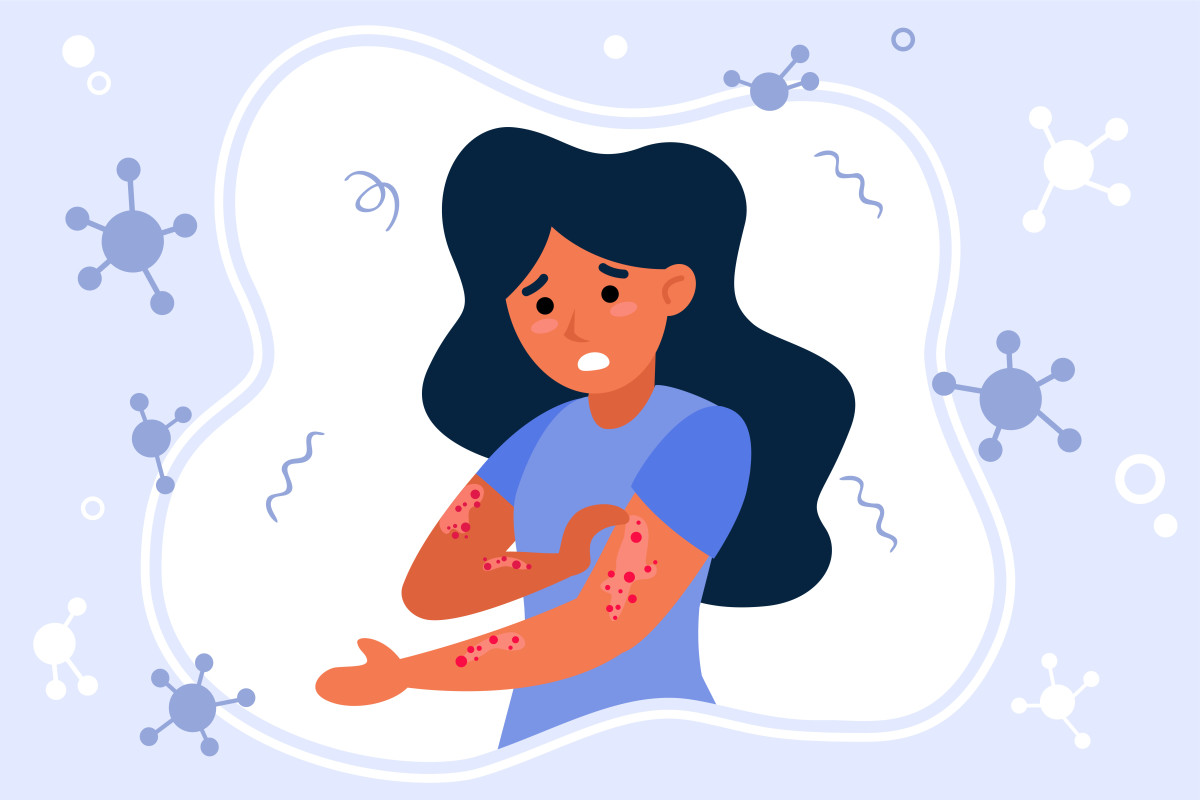What on Earth is an Allergy?
Most people are well aquainted with the symptoms of seasonal allergies. Seasonal allergies resemble a cold that just won't go away. Sufferers might experience a stuffy nose, sinus pressure, headaches and sore throat. They might also have a cough and feel fatigued. Occasionally, they will even experience rashes. They know their symptoms are related to the seasons, to certain pollens or even to dust. But what exactly are allergies?
Allergies are an over reaction of the immune system. A person with allergies has an immune system that over reacts to common, everyday substances as if they were bacteria or viruses that are intruding.
Imagine that your body is a community. Inside that community is a well trained military force, otherwise known as the immune system, which stands ready to attack any foreign invaders. If they see a strep virus, they'll destroy it. If they see Chicken pox, they obliterate it. The common cold, they'll wage a quick war. During these attacks, you may feel some uncomfortable symptoms. Just like would happen in a community if the military force were to come out and quiet a rebellion, when the immune mast cells in your body attack invading viruses, they end up making you miserable with congestion or rashes or gastrointestinal symptoms. These symptoms are short lived and are much preferred to the ravages that would occur if a virus or bacteria took hold.
Of course, we don't like symptoms. So, our bodies learn to make antibodies. These antibodies quickly identify and 'arrest' specific bacteria; which makes it impossible to catch the Chicken Pox more than once and helps vaccines to innoculate you against certain diseases. These antibodies can make life much more pleasant in many ways. But, sometimes, they malfunction. If the body misinterprets pollen or proteins as a foreign invader it can create an antibody to 'attack' it.
That's when allergy attacks strike. During an allergy attack, the body creates a type of white blood cell called a Mast Cell. These mast cells are called into action by Immunoglobulin E, otherwise known as IgE antibodies. During a full blown allergy attack, symptoms range from mild to debilitating. Severe symptoms can lead to anaphylaxis, a potentially fatal reaction most commonly occurring in food allergies and venom/bee sting allergies.
What Causes Allergies?
No one knows what makes one person more susceptible to allergies than another. There is definitely a genetic component, as tendencies toward allergic reactions can run in families. However, family members are not always allergic to the same things. Some families have mixed bags of allergies, with one member allergic to pet dander, another to certain pollens and a third could have life threatening food allergies. The common denominator would be the way their immune system has a tendency to over react to over exposure to ordinary substances.
There are some substances that are more common allergies than others. When it comes to pollens, ragweed and grass are extremely common. Hayfever is a well known form of seasonal allergies that earned it's name from the number of allergy suffering farm households that noticed their symptoms during the hay harvest.
Many people feel that food allergies are on the rise as well. There are 8 foods responsible for 90% of food allergy reactions that require medical attention every year. Those 8 foods are milk, peanuts, tree nuts, wheat, soy, eggs, shell fish and fresh/fin fish. Note that a variety of other foods, including sesame seeds, corn and bananas, account for the other 10% of food allergies that require medical attention and there are more reactions that don't require doctor visits.
Pet dander (hair and dry skin) is another common allergen; but just being allergic to 'pets' isn't necessarily specific enough. Some people are only allergic to certain breeds of dogs or cats. Others are allergic to specific species (rabbits, for instance) and still more can not tolerate any hairy pets whatsoever.
Any substance can be a potential allergen. In order to be classified as an allergy, the person's immune system has to release antibodies and histamines in response to a specific trigger. There are even rare reports of an 'allergy' to cold weather, where changes in temperature trigger a histamine release that results in hives. This is known as "cold urticaria". Exercise is known to increase the likelihood of an allergic reaction in some individuals.
How to Diagnose an Allergy
When allergies are suspected, the patient is referred to an allergist. The allergist will perform some kind of test. The most common allergy tests are the Skin Prick Test (SPT) where a preparation including a small amount of potential allergens is placed just under the top layer of skin (as in 'pin prick'). After a short wait, the doctor will observe any reaction. Allergies are indicated by a large hive or 'wheal' at the site of exposure. (The wheal is treated with an antihistamine salve for the patient's comfort)
Some allergists will also perform a blood test, where a small amount of blood is taken and examined for antibody response to specific antigens. Which test is more useful has been widely debated, since both have a high false positive and negative rate.
It seems most useful to use these clinical tests in conjunction with a challenge test, where the patient is exposed to small amounts of the suspected allergen in a controlled office setting. Reactions can be confirmed when the patient repeatedly develops symptoms under the same circumstances, especially if a placebo is used to ensure that the patient is unaware of when they are being exposed to the actual allergen.
How to Treat an Allergy
The most effective allergy treatment, obviously, would be to avoid all triggers. But allergens are pervasive in the environment, and other than in the case of food allergies, total avoidance isn't always practical.
Some people have had success with allergy injections that expose the individual to minute dilutions of the allergen and help to build up a tolerance level. This is called desensitization.
Pharmaceutical drugs may also be used to help manage the symptoms associated with allergies. Some medication inhibits the over response of immune cells or blocks the histamine response. Simple decongestants may also help an individual manage their allergies. The best treatment is a combination of the above therapies along with a somewhat controlled environment. A person with dust or seasonal allergies might use an air purifier to help minimize their exposure to their specific allergens, which lowers their overall intensity of reactions.
Living With Allergies
Life with an allergy isn't always easy, but you can manage your symptoms. Reduce exposures by keeping your environment dust free. Vacuum regularly (at least 2 hours before bed, so that any leftover dust and allergen particles aren't airborne while you're trying to sleep), encase your bed and pillow with air tight allergen covers to limit dustmite exposure, and tumble dry your sheets so they don't get pollen in them. Run a dust rag over the knick knacks and the ceiling fan blades. Stick a cup of baking soda in damp rooms to help absorb moisture and avoid mold or mildew issues.
The best thing you can do to manage your allergies is to know your allergy triggers so you can avoid them if possible, or at least minimize your exposure. And if you have food allergies, read ingredients and carry an epi pen.








